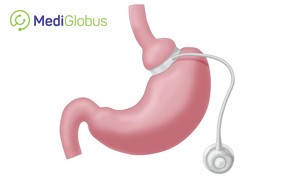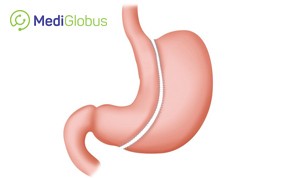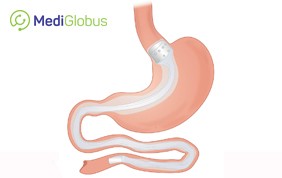Every year more and more patients need surgical treatment of obesity. According to the World Health Organization, more than 1.9 billion adults are overweight. At the same time, 35% of them are obese – this is one of the main preventable causes of death.
To whom is metabolic surgery indicated, what are the options for surgery and what awaits the patient after such a procedure – read material from experts of MediGlobus.
READ IN ARTICLE:
Indications for metabolic surgery
Possible complications in metabolic surgery
WHAT ARE THE INDICATIONS FOR METABOLIC SURGERY?
When searching for information about possible ways to lose weight, people are confronted with a description of surgical methods for treating obesity. But it is important to understand that this is not a universal technique for transforming the body with a single procedure, but it a surgical intervention which involved risks. Doctors prescribe bariatric surgery in cases where previous techniques have not led to weight loss (dieting and exercises). The patient must also fulfill certain requirements:
- Body mass index – from 40;
- Body mass index from 35 to 40 and the presence of the disease, in which one of the methods of cure is weight loss (type II diabetes, high blood pressure).
Intervention for obesity is carried out only to those patients who are in the age ranging from 18 to 75 years.
METHODS OF OBESITY SURGERY
Today, doctors use several bariatric techniques, each of which has its own characteristics. In leading clinics abroad, metabolic surgery is performed using modern instruments. They minimize the likelihood of postoperative complications and allow the patient to quickly return to the usual rhythm of life. The predicted weight loss in obesity surgery is up to 65% weight loss. Here are the types of metabolic surgery in more detail.
Gastric bypass
After this operation, the size of the stomach can hold up to 30 cm3 of solid food.
At the same time, less nutrients are absorbed, which also contributes to weight loss. After 2-3 days the patient is discharged from the hospital.

BANDING OF THE STOMACH
Food enters a small department, which is why satiety(feeling of fullness) is achieved faster. After surgery, patient usually leaves the hospital after one day.
The banding is regulated by doctors if necessary – the first such procedure is performed 4-6 weeks after the operation.

SLEEVE GASTRECTOMY
Surgical intervention is performed by laparoscopic method, so that the tissues are not traumatized. Patient is usually discharged on the fourth day after surgery.

GASTRIC BALLOON
But the procedure has some drawbacks – insignificant (in comparison with other methods of metabolic surgery) weight loss (up to 25 kg).

ENDOBARRIER
It complicates the process of absorption of nutrients, which contributes to reducing the weight of the patient.
Like the placing of a intragastric balloon, an endobarrier helps to reduce weight slightly.

AFTER METABOLIC SURGERY
Bariatric surgery alone does not guarantee a constant lower weight. Therefore, after the intervention, it is worth adhering to the prescription of the attending physician and regularly visit the clinic to control the situation. Usually patients are given the following recommendations:
- Change of diet (immediately after the operation – only liquid and soft foods, then maintaining a balanced diet);
- Regular exercise (after the recovery period);
Women are also advised to postpone pregnancy planning in the next year and a half after surgery.
POSSIBLE COMPLICATIONS IN METABOLIC SURGERY
As like other surgical procedure, bariatric surgery implies the likelihood of postoperative complications. These include:
- Skin folds – may require additional manipulation to remove excess skin;
- Insufficient absorption of vitamins and minerals from food (in this case, the necessary supplements are prescribed);
- Gastrointestinal bleeding;
- Weight regain.
For detailed information on metabolic surgery abroad – contact our medical coordinators! Leave your application through the form below!





